Drip Roasters
Brazil Otavio
Brazil Otavio
13 in stock
The coffee we ship is usually roasted within the last two weeks.
This is not a classic Brazilian espresso, although it does have the typical cocoa and hazelnut notes often attributed to Brazilian coffees, paired well with a subtle orange note. The fermentation contributes a lot to the sweetness and complements the flavor profile with notes of ripe, tropical fruits. We are thinking of guava or papaya.
After the harvest, the coffee is put into big bags for 48 hours of anaerobic fermentation. It is then placed on patios for some 15-20 days of drying.
Process: Natural, Anaerobic Fermentation
Varieties/Cultivars: Yellow Bourbon
Altitude: 1150 masl, 21.5°S
Cup Profile: Cocoa, Guava, Orange
Share

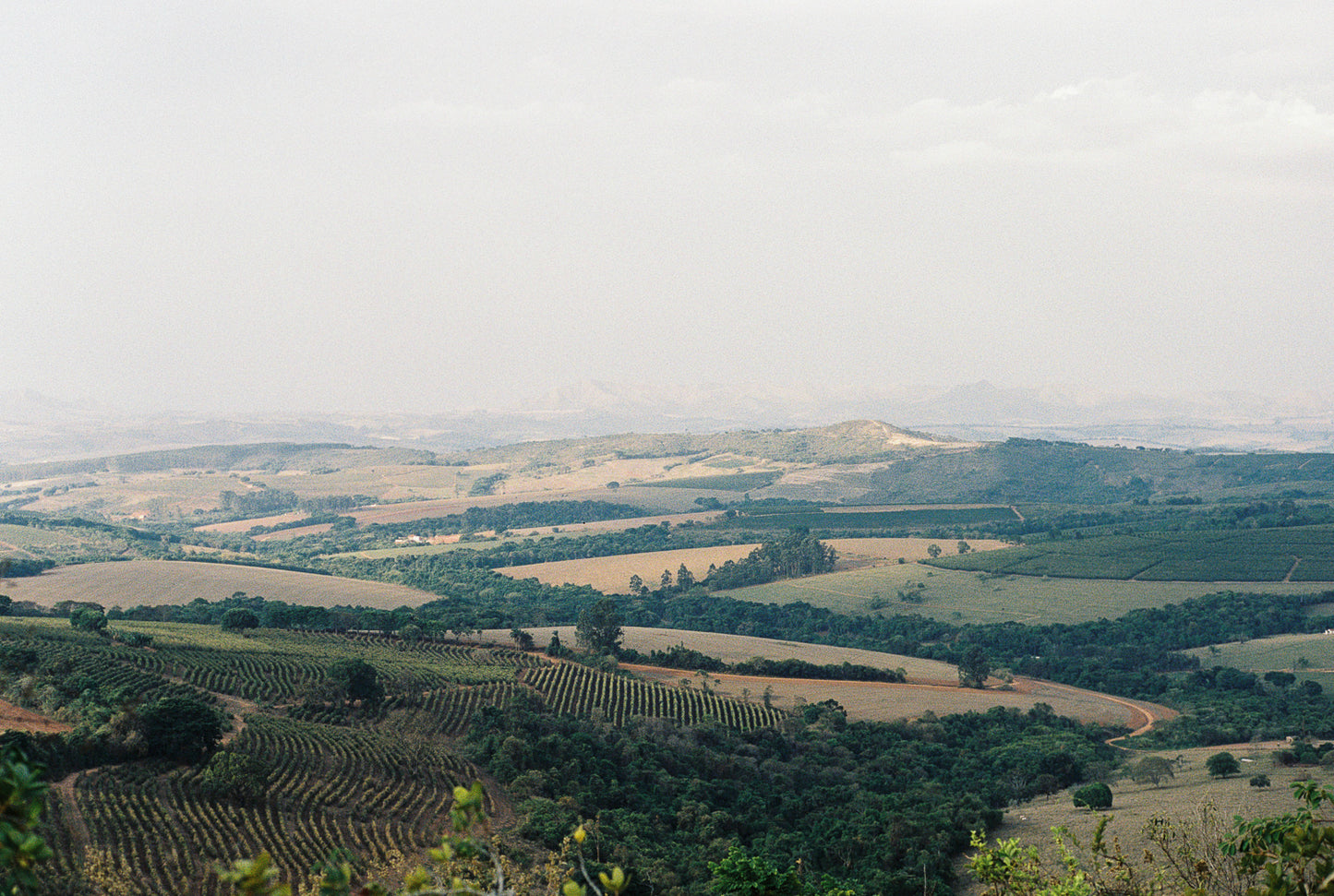
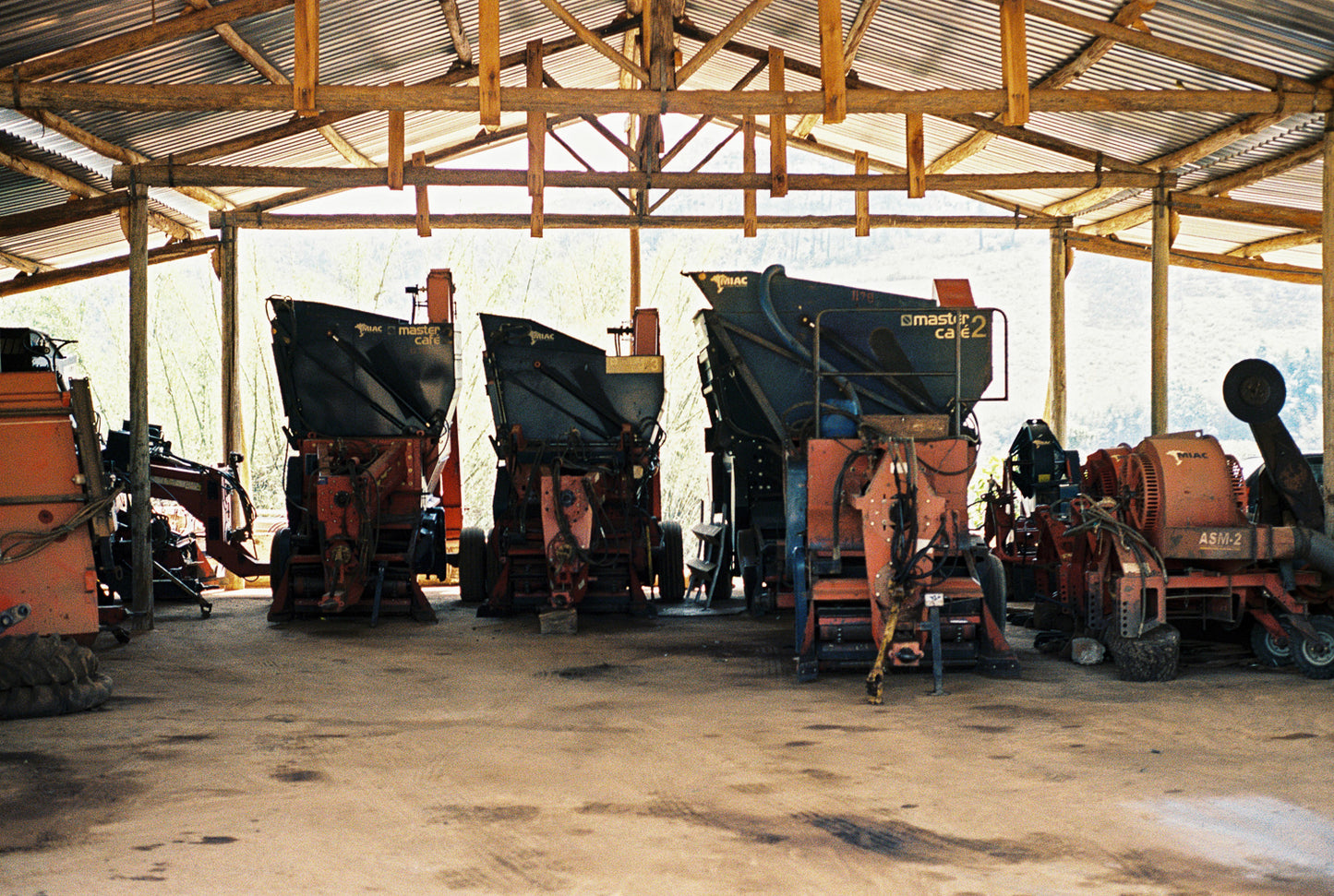
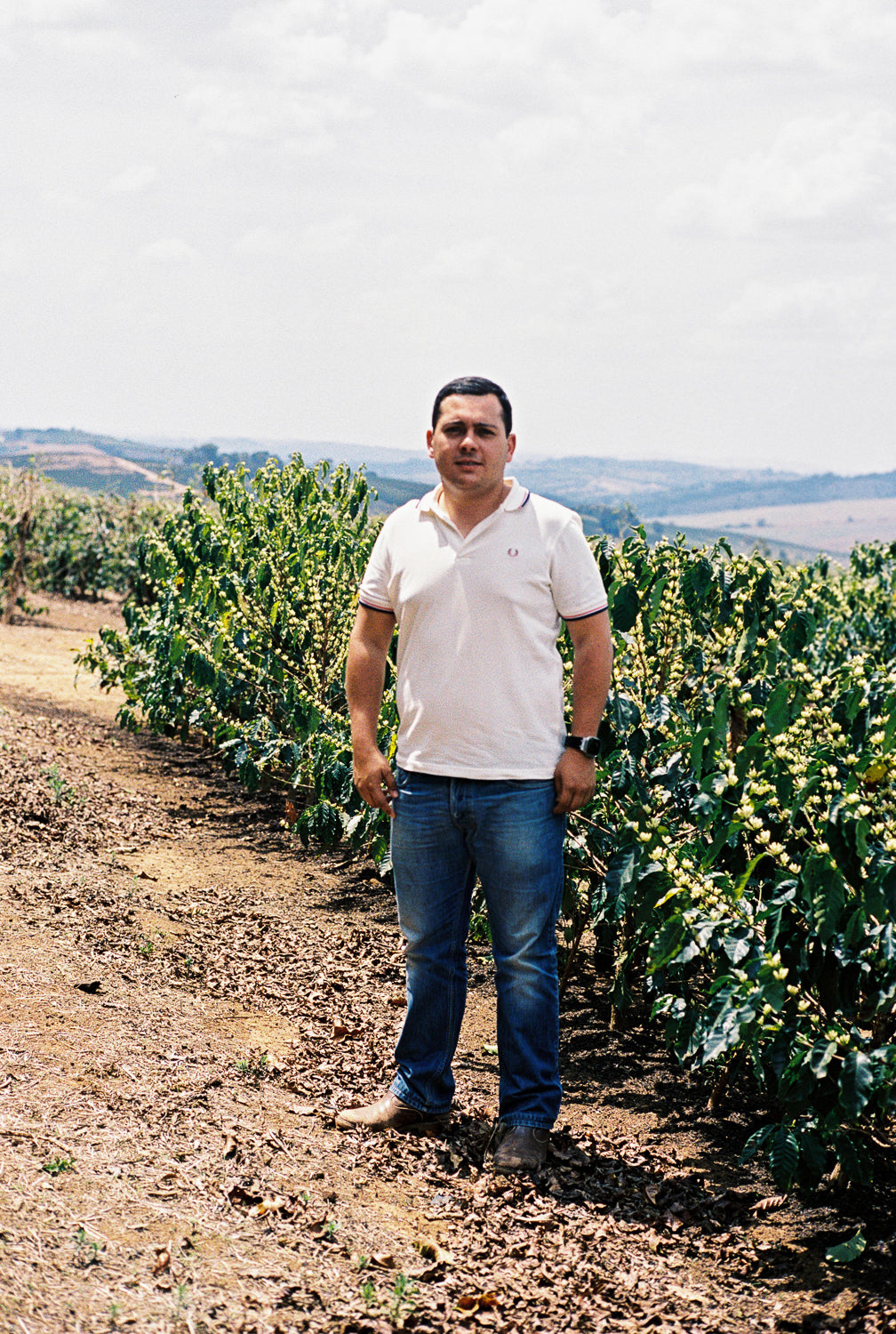
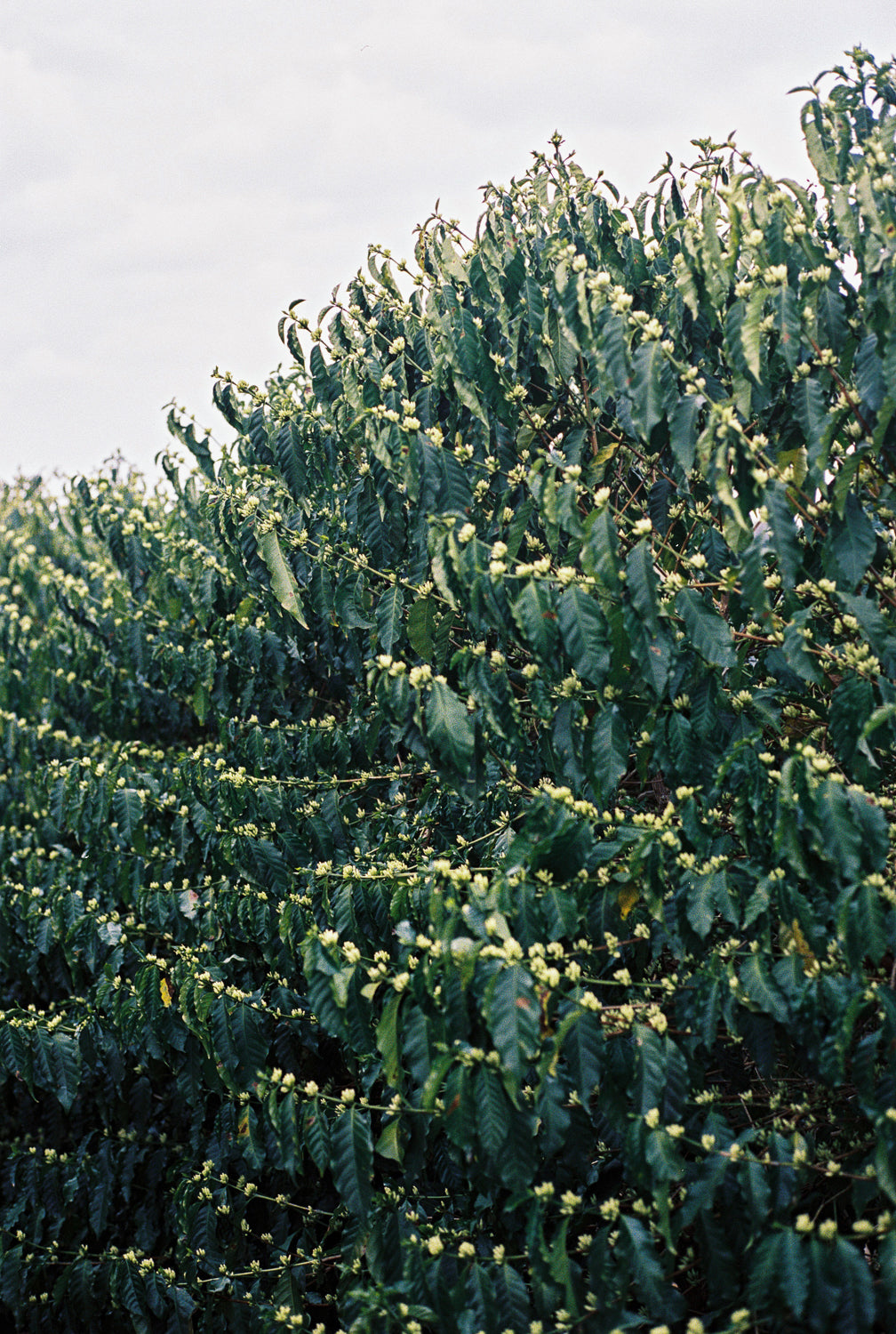
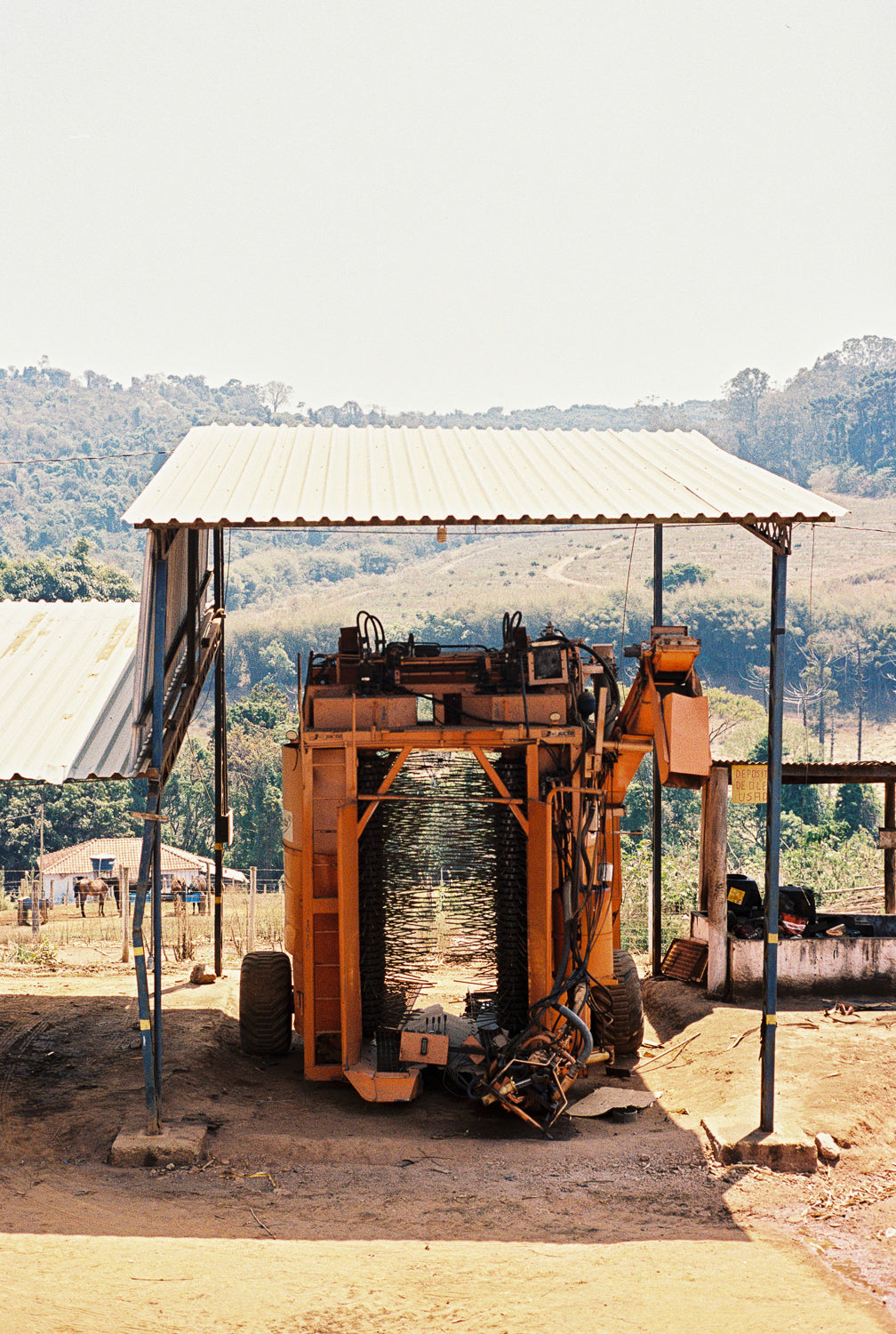
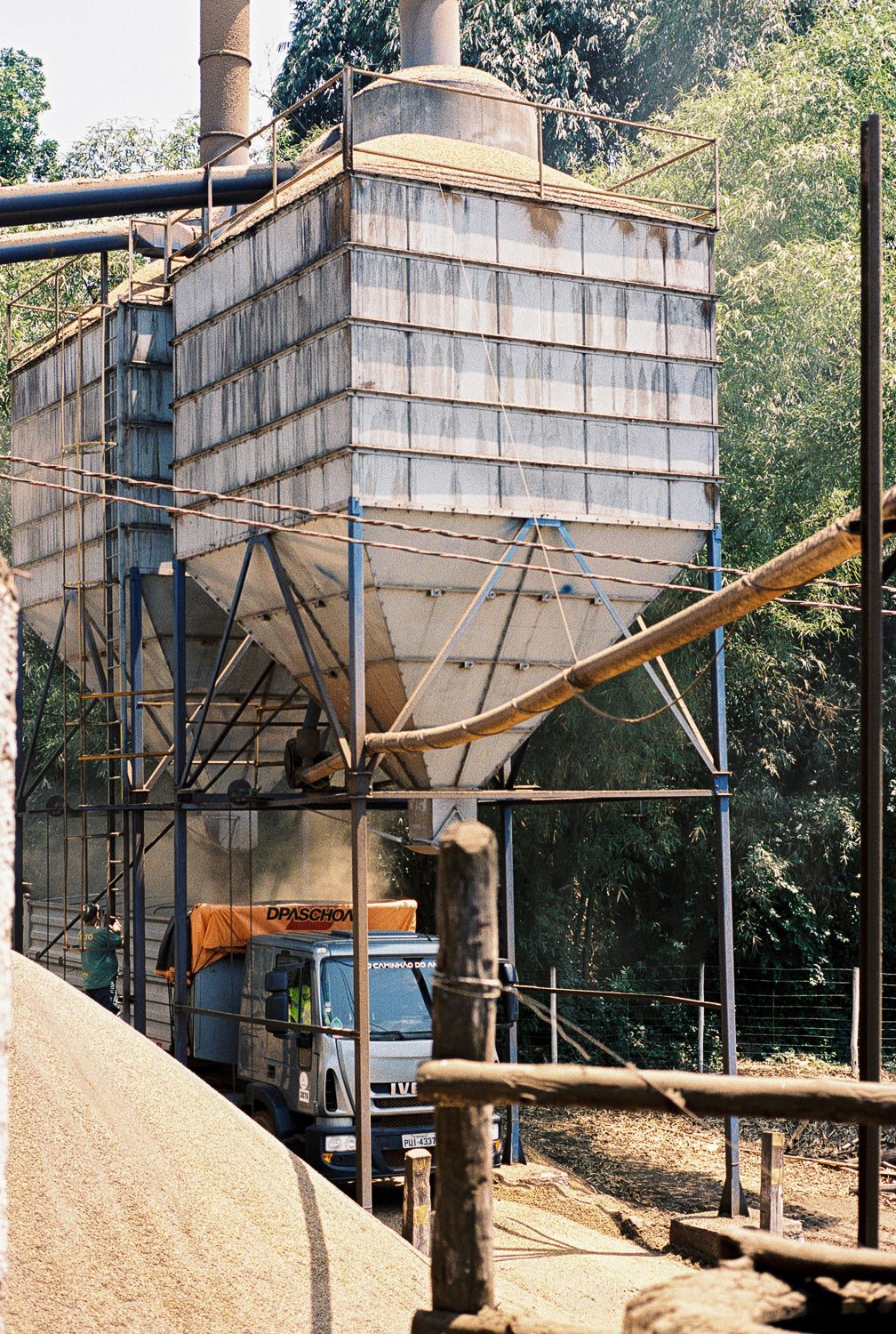
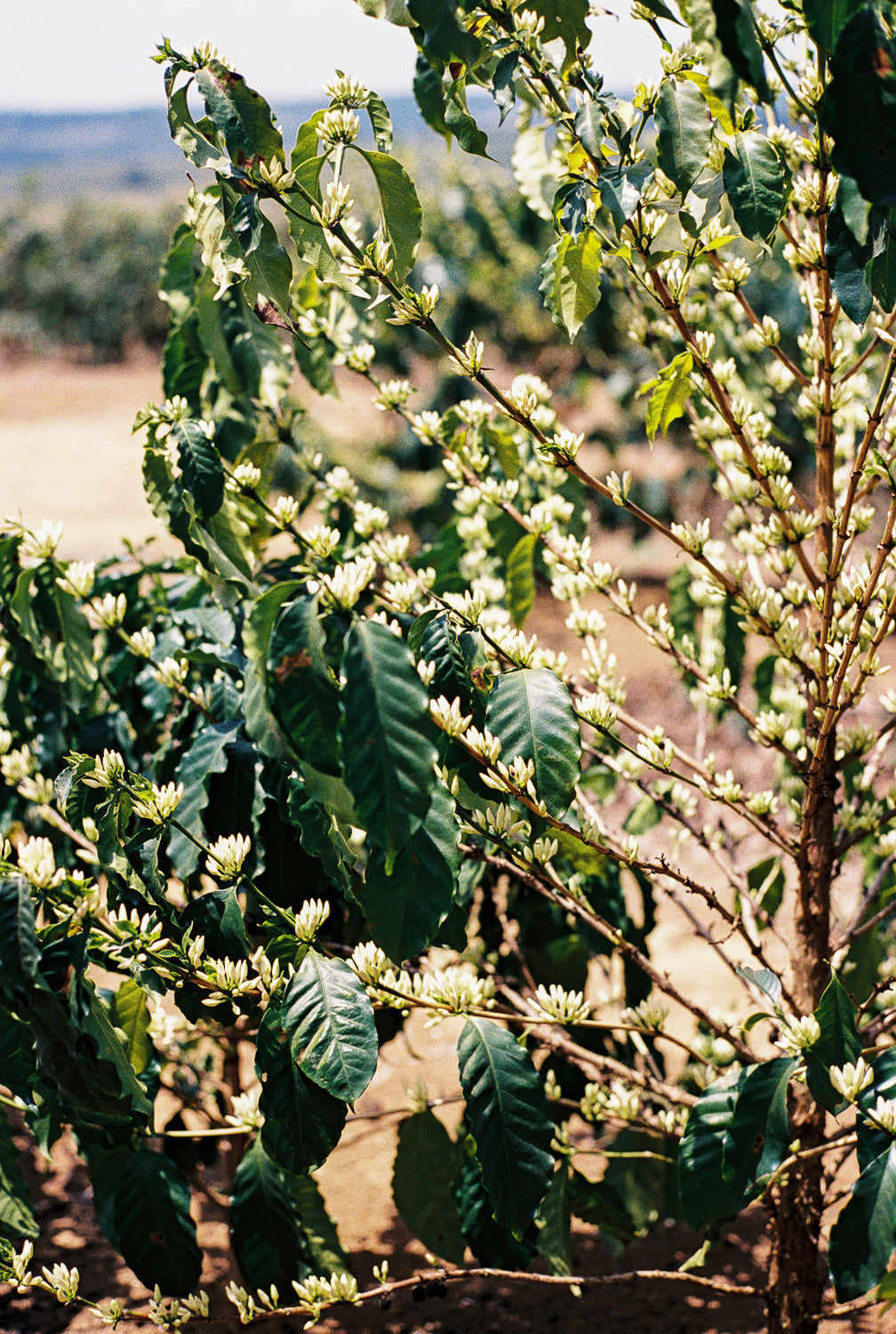
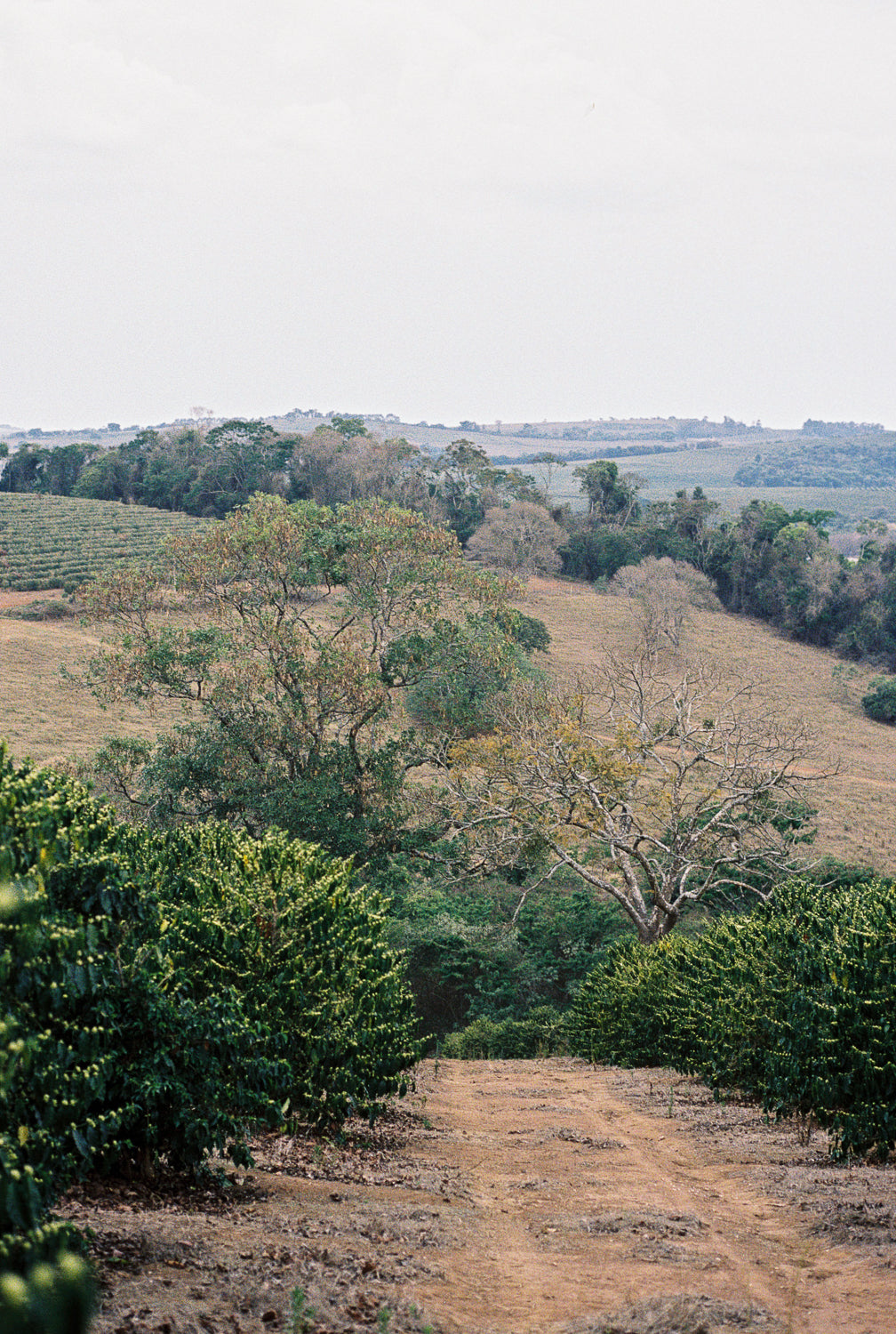
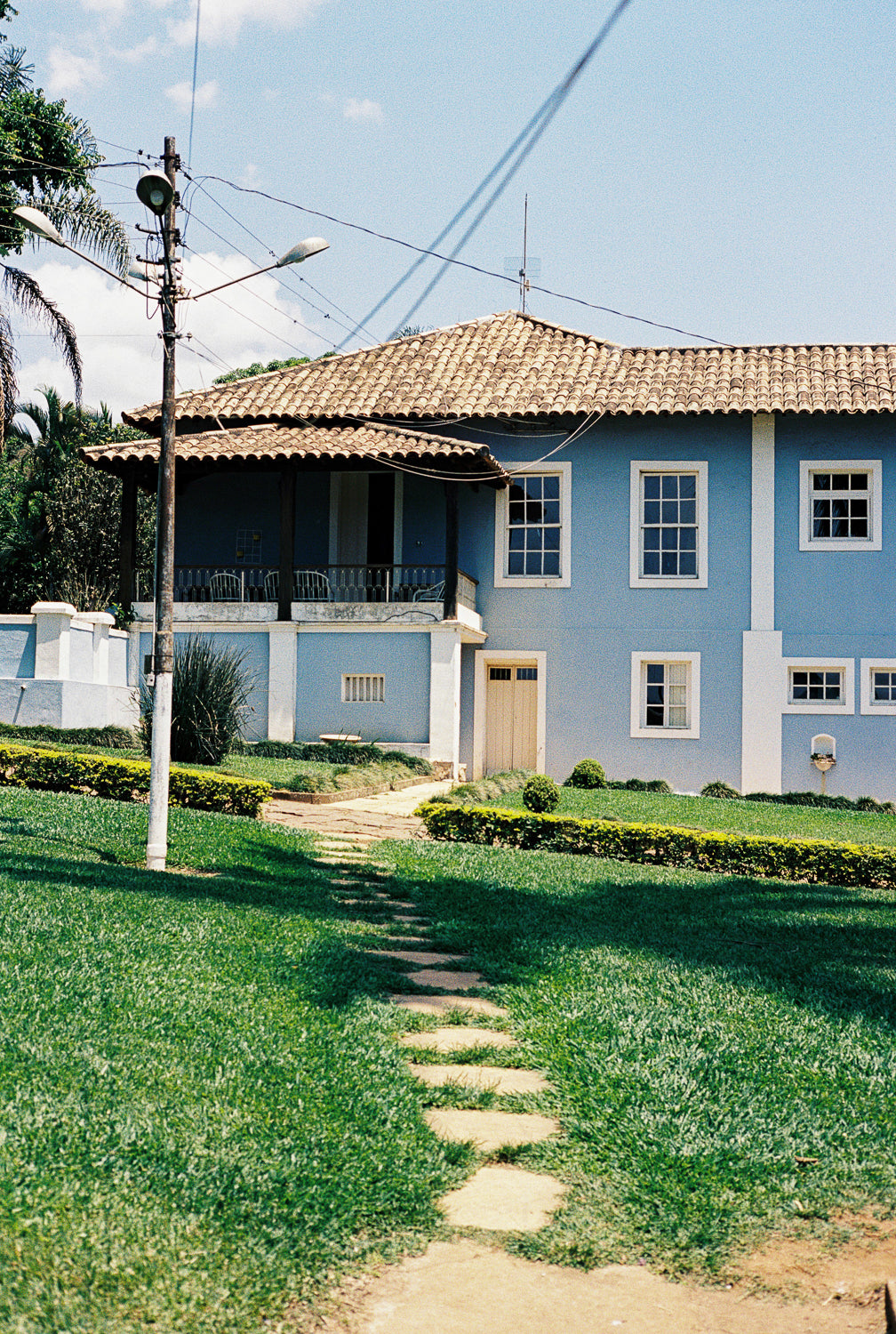
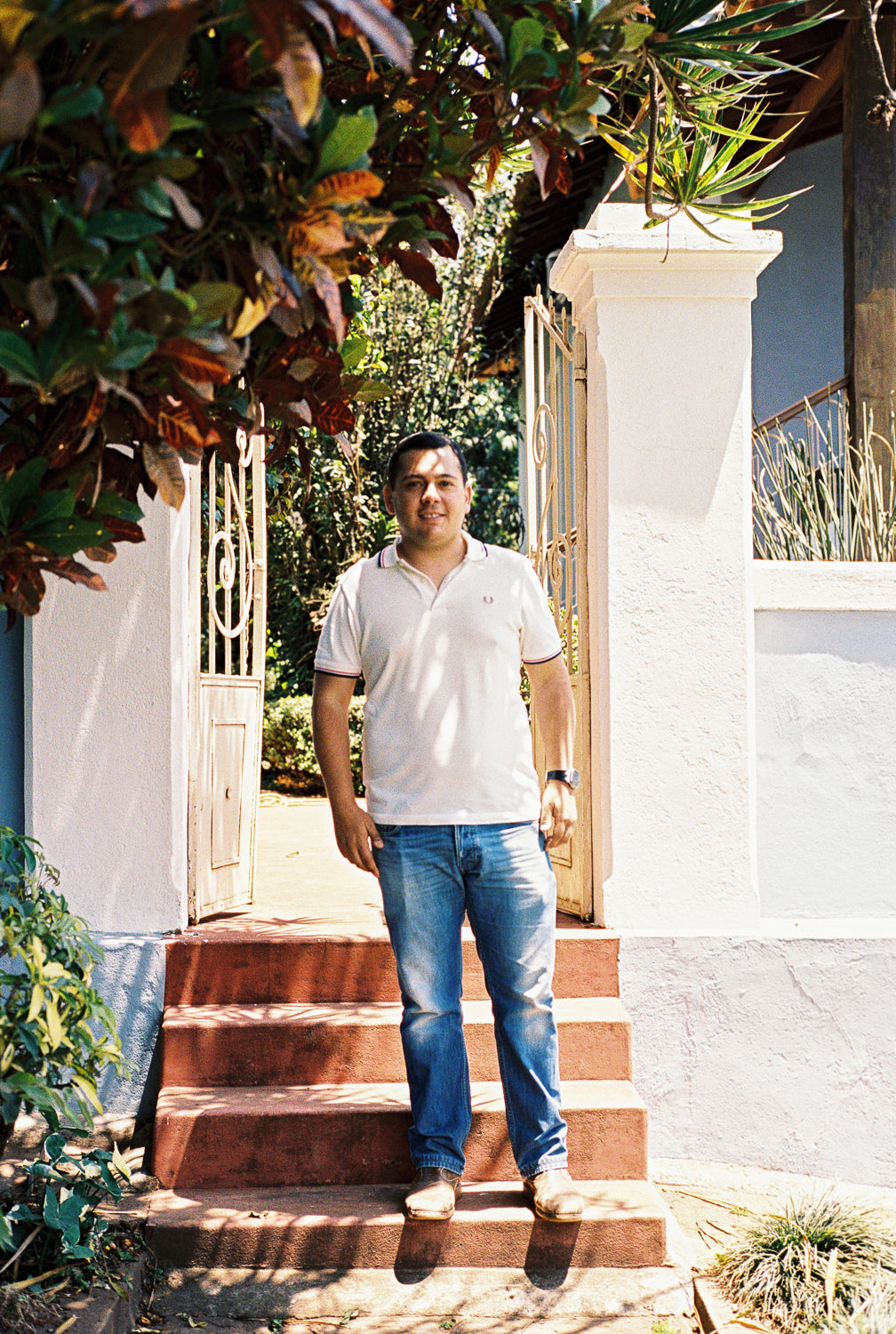
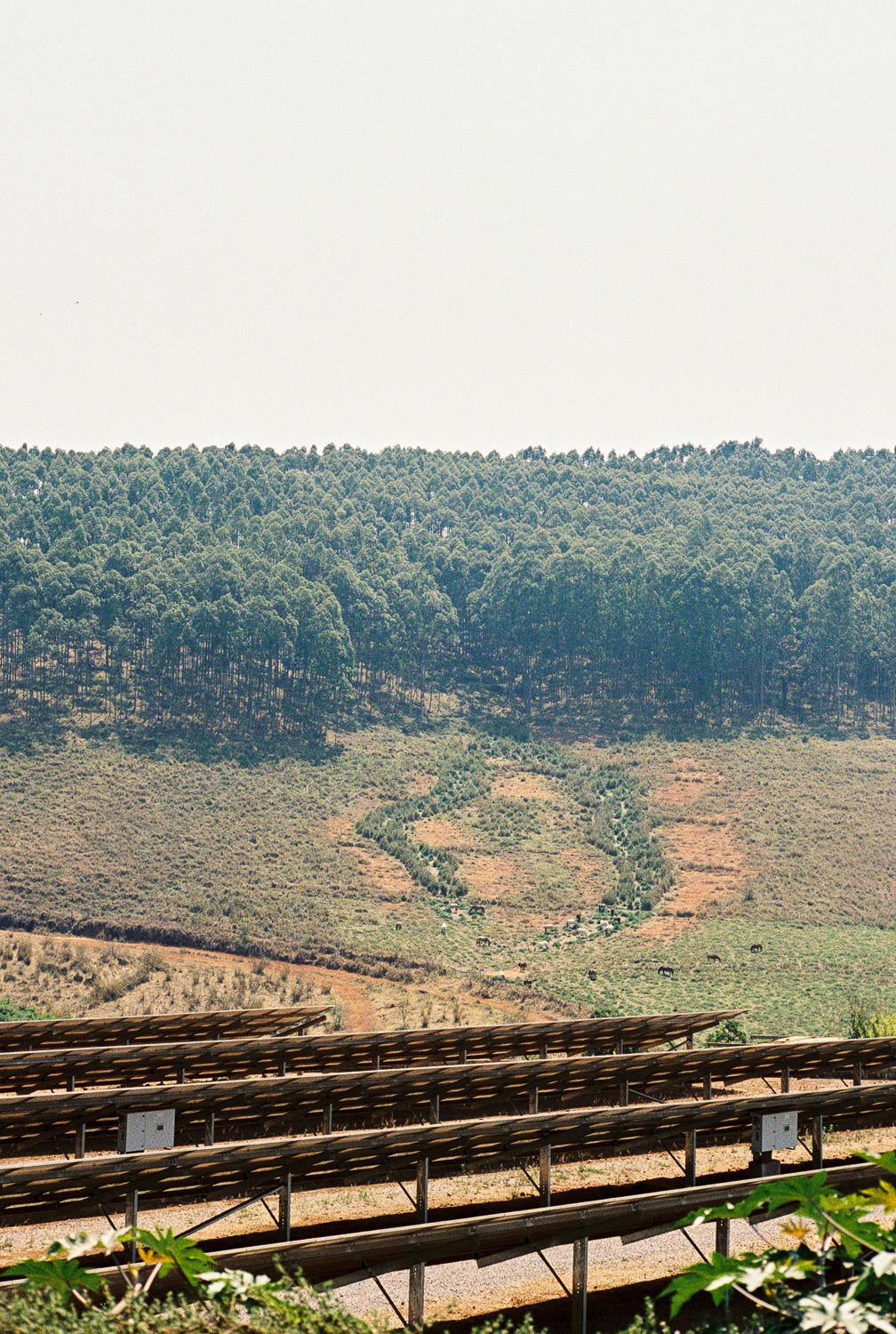
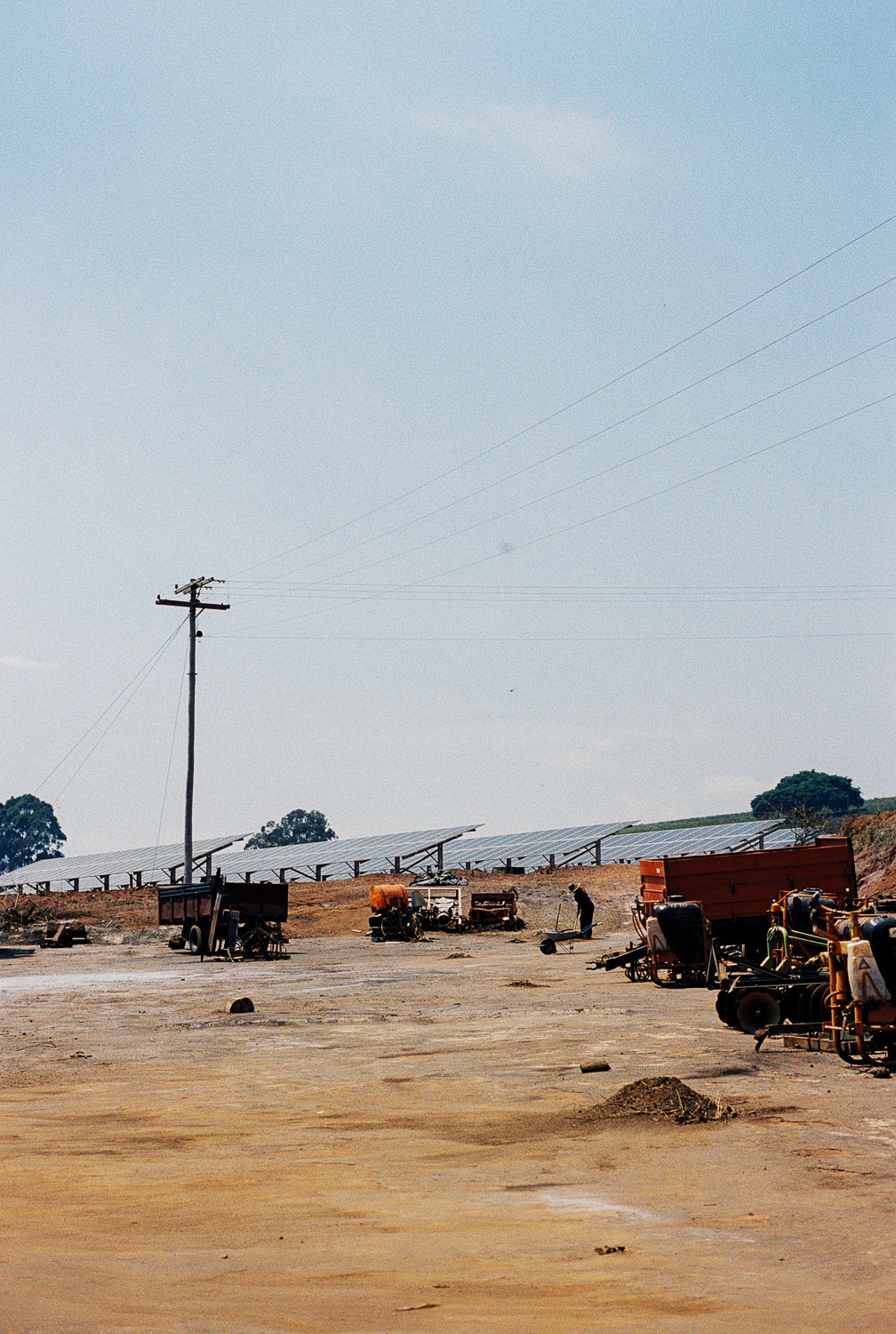
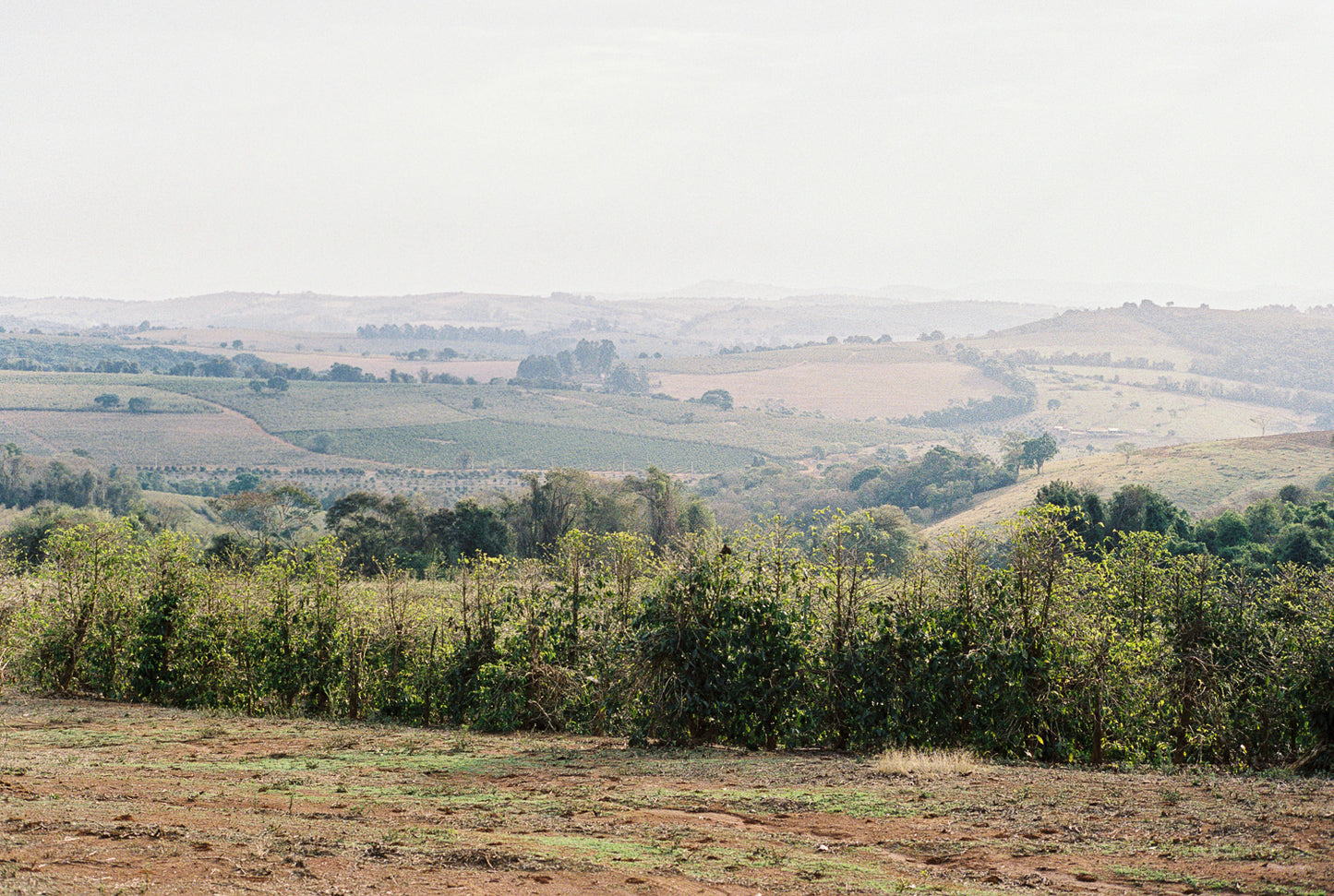
Price Transparency
We paid an FOB price of $3.27/lb for this coffee, which is 164% of the Fairtrade minimum price. Find out what this means here.
Fazenda do Salto
Farm: Fazenda do Salto
Producer: Otávio Reis
Purchasing relationship: 5 years
Region: Carmo da Cachoeira, Sul de Minas, Minas Gerais
Altitude: 1050-1250 masl, 21.5°S
Our Brazil Otavio takes its name from Otávio Reis, who is the farm’s producer in the fifth generation. This is the fifth year we have bought coffee from the farm and we are very impressed by the consistently high quality.
Fazenda Do Salto is a larger farm than most of the farms we buy coffee from. The traditional family business has well-organized structures and experience is passed down from generation to generation. At the same time, the family keeps up with the times and puts an emphasis on innovation and technology in order to produce specialty coffee of the highest quality. This was obvious to us when we visited the farm in late 2024.
The farm employs 50 workers all year round and another 80 temporary workers during the busier time of the year. Many of them also live there. Of the 1700 hectares of farm land, a mere 900 are used for coffee farming. Besides growing some other produce and keeping 150 horses – the family’s other big passion besides coffee, they have reserved 400 hectares of land for forests with native tree species. Around 20 natural water springs can be found on the farm.
Visiting the farm, it became clear that they think about sustainability a lot. Electricity is produced with solar panels, the water used for processing the coffee is from the farm’s own springs and is cleaned and filtered before it is given back to the ecosystem so it does not cause any damage. Besides drying coffee on patios, they also use mechanical, rotative dryers. While regular dryers would be powered by an over underneath, Otávio uses boilers to heat the dryers. This way, one single oven can heat ten dryers, saves them a lot of firewood and makes the process much more efficient and sustainable. Besides, drying is more gentle this way, as the heat is not applied directly and the temperature used for drying is more stable.
Compost is being used, pest control is carried out to a very limited extent and with respect for the environment and nature. Soil is recovered and regenerated by not keeping it uncovered. «Biodiversity is important», Otávio says. The family has held UTZ and Rainforest Alliance certificates for almost 20 years.
Experimenting is important to Otávio and he enthusiastically works with new processing and fermentation methods to produce outstanding coffee. His coffees regularly receive high ratings in regional and national competitions (e.g. the Cup of Excellence) and often even reach the final rounds. At the beginning of every harvest, they do different trials for fermentation processes, bring the samples to a lab and to Otavio’s consultant and then evaluate the results.
The Coffee Quest
We have been buying some select coffees from The Coffee Quest almost since we started Drip Roasters. Among other coffees at times, we buy some of our Ethiopian and Brazilian coffees through them. Since we first started working with them, the Dutch company has been a reliable and transparent partner for sourcing, export and import.
Brazil
Though there are many smaller farms in Brazil as well, the country is home to some of the world’s biggest coffee (and other) farms. Though we may not buy from the true mega farms, the ones we have been working with over the last couple of years are definitely bigger in size than the average coffee farm we buy from in other producing countries.
Coffee is often harvested by machines in Brazil. While this may sound less romantic than hand-picking, there is no reason to avoid mechanically harvested coffees at all. When the machines are used properly, these coffees can taste just as good as hand-picked coffees. When we visited Fazenda do Salto, farmer Otávio showed us the harvesting machines and explained to us how they work in detail. He also elaborated on how they have to check and adjust the harvesters’ settings every day to make sure the coffee plants do not suffer from the process.
While a human coffee picker can distinguish between ripe, almost ripe and overripe coffees cherries, mechanical harvesters are not able to do so in detail. Therefore, sorting the coffee afterwards is crucial. In Brazil’s mechanized coffee industry, this step as well is done by machines to a large extent. So are drying the coffee after processing with mechanical dryers or transporting the coffee from one machine to the next, for example for milling it after drying.
On Brazil’s large-scale farms, a higher degree of automation is required to manage production efficiently. But let’s be honest: Picking coffee by hand is some of the most taxing and strenuous labor there is in the coffee industry (and beyond). It comes as no surprise that in many coffee growing regions, farmers find it more and more difficult to find seasonal workers for this job. We believe it’s a good thing, if jobs which understandably less and less people want to do can be partly replaced by machines.
Another noteworthy peculiarity of Brazil as a producing country is the Forest Code. Brazilian environmental law requires farms to set aside a certain percentage of their farm area as Legal Reserves with the goal of creating sustainable use of resources and restoration of native vegetation and biodiversity. This land, which may often comprise 20% of a farm, cannot be used to grow any crops on. The percentage required is defined by the biome in which the farm is located, e.g. coffee farms close to the Amazon have to reserve much more of their land for conservation. While this regulation won’t reverse climate change, we believe there is need for more laws enforcing the protection of the environment, forcing big corporations to do their part. We are happy to work with coffee producers who put aside much more of their land as conservational reserves than they have to according to the law.
Brew Recommendation
Brew ratio: 1:2.2
Coffee: 19g in / 42g out
Extraction time: 28s














